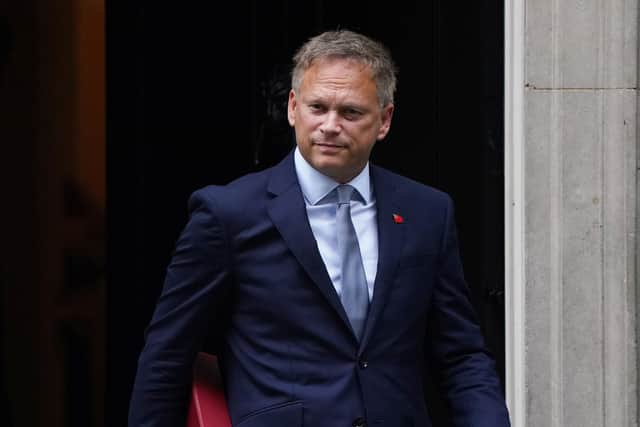Unions could be sued for going on strike under new laws
Grant Shapps, the Business Secretary, today revealed plans to introduce “minimum safety levels” of staffing during industrial action following months of strikes across the country.
His department said that levels will be set for fire, ambulance and rail services, with the Government now set to consult on how many staff need to be working to maintain the “basic function” of trains and emergency services.
Advertisement
Hide AdAdvertisement
Hide AdThe announcement said unions would be bound to follow the legislation and would risk employers bringing an injunction to prevent strikes from taking place or seeking damages if they did not comply.


It comes as Sir Keir Starmer, the Labour leader, said that he would repeal the Government’s anti-strike legislation, following a speech this morning where he set out his vision for the next decade if his party wins the next election.
Meanwhile unions said that the move would do nothing to resolve the disputes breaking out across multiple sectors over the UK in recent months.
“Industrial action is disruptive for everyone – from people relying on essential services to get to work or care for their family to hard-working business owners whose sales suffer,” said Mr Shapps.
Advertisement
Hide AdAdvertisement
Hide Ad“It also costs those striking at a time when family budgets are tight.
“As well as protecting the freedom to strike, the Government must also protect life and livelihoods.
“While we hope that voluntary agreements can continue to be made in most cases, introducing minimum safety levels – the minimum levels of service we expect to be provided – will restore the balance between those seeking to strike and protecting the public from disproportionate disruption.”
In an attempt to head off future disputes over pay in the public sector, the Government has also invited unions to meet for “honest, constructive conversations” over a fair and affordable pay settlement for 2023/24.
Advertisement
Hide AdAdvertisement
Hide AdThis comes after the Government refused to reopen negotiations for the settlement for this year, which has been outstripped by record levels of inflation, resulting in an effective pay cut for thousands of workers, such as nurses.
A statement said: “Ministers are reaching out to unions to invite them to sit down and discuss the evidence that the Government will be submitting to the pay review bodies – and hopes that unions will also share their evidence.
“These new discussions would feed into this process and are offered as the Government recognises the particular economic challenges the country faces this year.”
Gary Smith, GMB general secretary, said: “A Government that has presided over 13 years of failure in our public services is now seeking to scapegoat the NHS staff and ambulance workers who do so much to care for the people of our country.
Advertisement
Hide AdAdvertisement
Hide Ad“The NHS can only function with the goodwill of its incredible staff and attacking their fundamental right to take action will alienate them even further and do nothing to help patients and the public.”
RCN general secretary Pat Cullen said: “Curtailing workers’ freedom to participate in lawful industrial action is always undemocratic and we will look closely at what the Government releases.